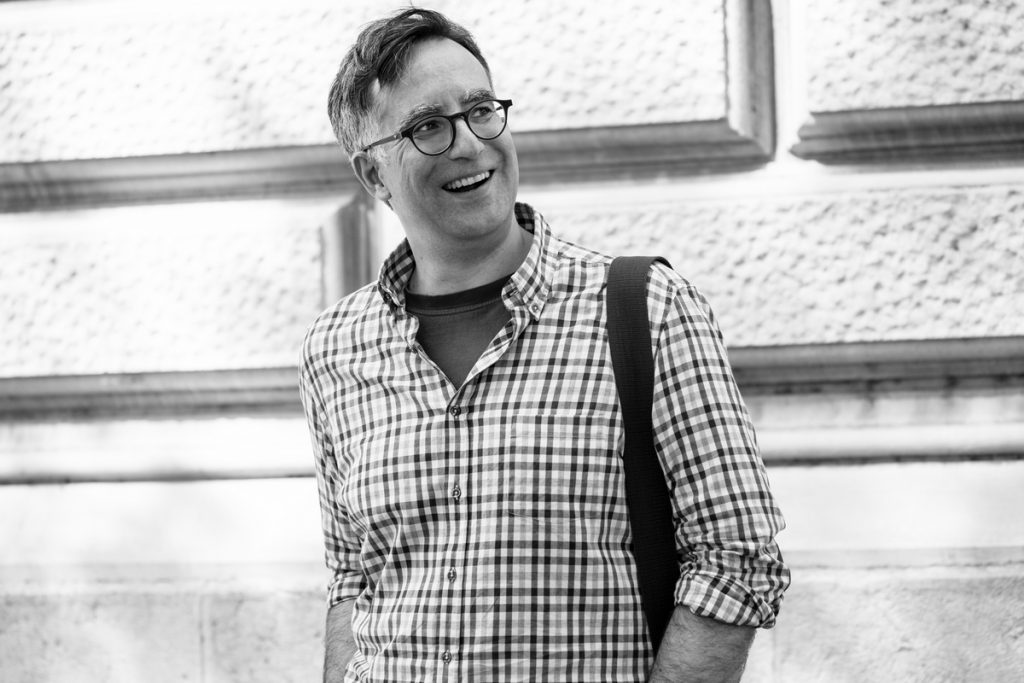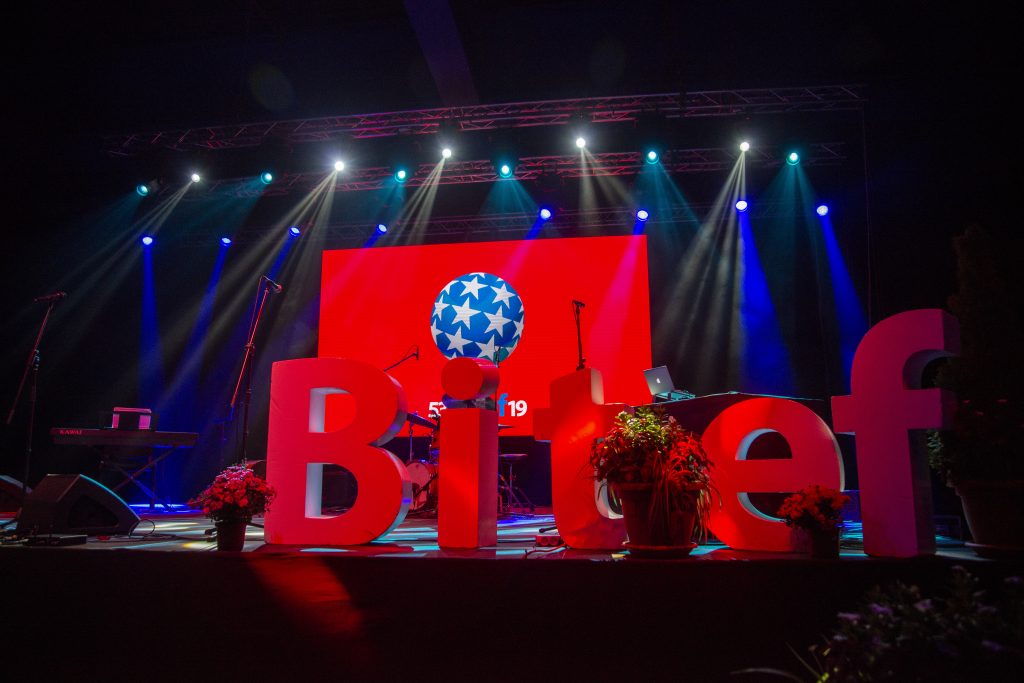There will be a short but rather intensive programme because we believe that it is very important to demonstrate that it is possible to stage plays and sustain this art form, which, like other performing arts, has suffered greatly because of the pandemic.
We spoke with Ivan Medenica at a time when there were still no safe (epidemiological) circumstances for the festival to be held in mid-September with a rounded off and approved programme. “We are very glad that all the world’s theatres that were supposed to participate in the 54th Bitef had the patience to wait for the final decision to be made because the last segment of the festival’s production takes time. Since it will not be possible for a large number of people to gather indoors in September, the Belgrade authorities, who are the founders of Bitef, made the decision to postpone the 54th Bitef for next year and then it will have a double edition “, says Bitef’s artistic director, Mr Medenica.

Bitef already has a tradition of holding regional press conferences, which this time around, took place in Ljubljana. How important is the festival’s international character?
Bitef is an international festival by definition, name and tradition, and as such, its positioning in the media and other global platforms is just as important as domestic positioning. We should keep repeating that Bitef is the only festival that has received the highest European theatre award – the Premio Europa per il Teatro – in one of the award categories. That is why I introduced the practice that before the festival takes place in Belgrade, we always have one international media announcement in a country from which one or more theatres that perform at Bitef come from, or which, is in other ways, related to our festival. So far, we these announcements in Rijeka, Berlin, Paris, Zagreb, Rome, Brussels and Ljubljana, as the last place, because two plays from Ljubljana were selected to be staged at the 54th Bitef. The first play was produced by SNG Drama and the other is co-produced by SNG Drama, Cankarjev Dom and Mestno gledališče ljubljansko.
The last conference, that took place in Ljubljana, is especially dear to me not only because we held it in almost impossible circumstances, i.e. during the pandemic, but also because we needed special permits to even enter Slovenia. We got this permits primarily because the Slovenian media and theatre professionals have always openly shown deep respect for Bitef, and their artists always highlight how important the festival is for their professional development. It is safe to say that, after Belgrade, Ljubljana is the city where our festival feels most “at home”.
When asked if new technologies and theatre, namely art, can be combined in one word, Ivan Medenica said that the word is ‘cyborg’
What was supposed to be the message of this year’s Bitef, the 54th in a row?
The Belgrade authorities made a rational decision to postpone the 54th Bitef for next year and for it to have a double edition (54th and 55th merged), which implies a bigger budget and a larger number of performances. However, for symbolic reasons but also for the sake of boosting the morale, we thought that it was very important to show that it is possible to stage plays while adhering to all security measures and to sustain this art form, which, like other performing arts, has suffered greatly or rather was brought to the point of extinction because of the pandemic.
We obtained permission to hold a short programme, which would serve to ‘keep the flame burning’ so to speak, and announce the double edition Bitef for 2021. Although the programme is short, it will be quite intensive. We are going to stage one of the selected plays, which will be accompanied by several other forum-like programs that will examine current circumstances, above all the possibility the performing arts surviving in these circumstances. With that in mind, an informal, general, but the essential message of this festival prologue would be that theatre happens in spite of everything.

Which play will introduce us to the main topics of the 54 Bitef and what are those topics?
Our plan was for it to be a play dedicated to this unfortunate year, created at its very beginning, with the appropriate title “2020”, which, co-produced by three Ljubljana theatres/cultural centres, was conceived and directed by the Croatian director Ivica Buljan. It is based on the books of the globally popular Israeli historian, Yuval Noah Harari, using props brought by the actors themselves, or which were jointly acquired during rehearsals. The final text is the result of all that (such an approach is called devised theatre).
The play showcases Harari’s provocative theses about the genocidal nature of Homo Sapiens, which destroyed all other human species, the fact that man, striving for bliss, immortality and divinity, upgrades his body technologically, thus risking destroying his subjectivity. This play raises key questions of the 54th Bitef, from ecological catastrophe to posthumanism. Even before the decision was made to postpone the 54th Bitef, it became clear that it will be difficult to realize this guest performance in the current circumstances because the play has elements of immersive theatre, the actors interact with the audience, etc.
Instead, we will stage a play, actually, the only one that will be performed in the upcoming September, which showcases only to the thematic line of the 54th Bitef, but also the artistic one – the phenomenon of the dehumanized body of the performer. It is a play called ‘Uncanny Valley’, directed by the famous director Stefan Kaegi and staged by his theatre company Rimini Protokoll (in co-production with the Munich Kammerspiele). This play-lecture is performed by a humanoid robot, a replica of the writer Thomas Melle. One of the topics of the lecture is the writer’s bipolar disorder, of which fear of losing control is one of the symptoms. That is exactly what Melle does when he allows the robot to speak instead of him, i.e. he resignes his own subjectivity to the robot.
We should keep repeating that Bitef is the only festival that has received the highest European theatre award – the Premio Europa per il Teatro.
You came to the helm of Bitef in 2015. Did you manage to bring Bitef back to the international scene, which was one of your goals when you were appointed the festival’s director in 2015?
Well, I can’t be the judge of that. But, since you have asked that, I will try to stick only to the facts in my answer. The aforementioned foreign press conferences have significantly contributed to the international visibility and reaffirmation of Bitef. The most important of them was the Bitef forum held in 2017 at Palazzo Venezia in Rome, as part of the mentioned Premio Europa event (in the category called “Comebacks” which is dedicated to one of the former laureates). The forum was attended by some of the world’s leading critics, dear guests and friends of Bitef like Georges Banu (Romania / France), Marina Davidova (Russia) and Yun-Cheol Kim (South Korea). The guest appearance of one of the globally most important plays in recent decades – Jan Fabre’s Mount Olympus – which lasted for 24 hours, was broadcasted live on Radio and Television of Serbia (RTS), was declared the cultural event of the year by the local media and I was chosen as “The Person of the Year” by Vreme weekly but has also been covered by foreign media. My favourite thing is how the British received it – on the one hand, there was a praiseworthy article in the prestigious Guardian, while on the other hand, the British tabloid, The Daily Mail reported that “the crazy Serbs” not only staged the play but also broadcasted these “theatrical orgies” on national television.
In addition to the media reception and the growing number of foreign guests, the repositioning of Bitef on the global stage is best illustrated by the fact that all prestigious theatres/troupes have offered to co-produce with us, such as Theatre Vidy from Lausanne (Switzerland), NTGent (Belgium), Raffaello Sanzio (Italy) and Ultima Vez (Belgium).
The slogan of the 52nd Bitef – “World without People” – was a sort of premonition of the disturbing social phenomena of the modern world. Today, unfortunately, we have art and culture “without people” or with people but at distance. How has the pandemic affected culture and theatre in general?
Paradoxically, it turns out that theatre and live art forms have been among the most jeopardized human activities during the pandemic. They are, in fact, completely suspended in many countries. This is completely unacceptable to me because the physical distance that can be implemented in the auditorium (with an adequate number of empty seats) is more precise and reliable than the one required in bars, restaurants, gyms and public transport, which, let’s not kid ourselves, is just a pretence. The physical distance between the performers on the stage poses a bigger problem because it would encroach on the essence of this art (physical performance, mise-en-scène…), but I am sure that a solution for that problem can also be found.
I think that those theatres that come up with creative forms of performing, i.e. those that meet security measures, should be allowed to work, and even encourage such practices. The complete shutdown of theatres until further notice carries numerous risks, from serious financial cuts to the loss of artistic condition. I am generally an optimist, but this time around, unfortunately, I cannot find a reason to be one. I am afraid that theatre, especially ours, which has been systemically poorly organized for decades, will recover very slowly from the pandemic.
New or current normal
What do you think about the phenomenon called social distancing, which will be in place for nobody knows how long?
Social distancing is required in the circumstances produced by a pandemic, but it is acceptable only as a time-limited phenomenon. Therefore, we should not talk about the ‘new normal’ but rather ‘current, short-term normal’. Physical distancing, because that’s the gist of it and should not be called social distancing, not only endangers our intimate life, relationships with others, laughter, play, hugs, socializing, but also our social and political life. For many areas of social life, ranging from theatre, through parliament to universities, contact, body language and energy exchange are necessary, as a form of socialization, an affective factor of communication and means of persuasion, as well as the bearer of deeper meaning. No community, agoras of any kind, can survive without gathering in physical space. Digital space provides only the illusion of togetherness and interaction.